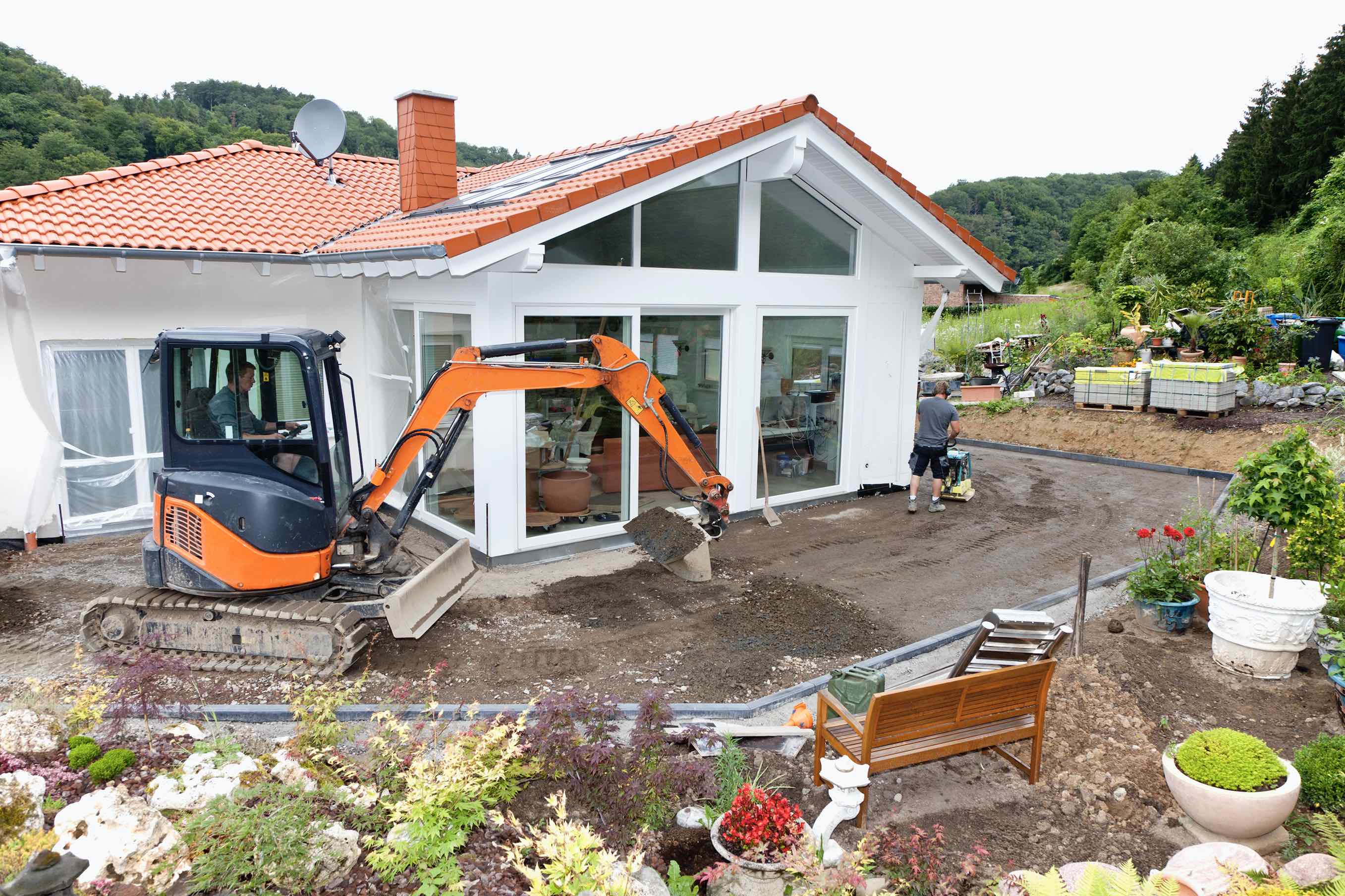Renovations: what permits do you need and what subsidies are available?
Coralie and Daniel have been living in Steinfort for a few years now. They’re thinking about renovating their home, but they have a few questions. Do they need a building permit? What steps do they need to take? Are they eligible for financial aid? It’s only natural to need a bit of guidance, so myLIFE has put together a handy list of everything they need to consider before they start.
Coralie and Daniel have been living in Steinfort for the past 12 years, not far from the Belgian border. They’ve decided to convert their loft into an office space and a library. Having spoken to an expert about the feasibility of this project, they now know they will have to raise and reinsulate the roof and add a skylight to brighten up their new living space. But they want to be sure of the permits and authorisations they need before they actually start the works.
Do you need a building permit?
Whether or not you need a building permit (also known as a “planning permission”) will depend on the nature and location of the planned works. In Luxembourg – generally speaking – any works for the purpose of transforming, constructing or demolishing a building are subject to a building permit.
⇒ The following works require a building permit: construction, transformation, extension, modification (of walls, load-bearing elements and roofing), change of use of a building, installation of awnings, canopies or advertising material on the roadside, demolition, and backfilling and excavation.

However, some smaller construction projects such as garages smaller than 20m2 or swimming pools under 10m2 require only a declaration of works. However, this can vary between municipalities, and certain smaller works may be exempt from authorisation. Coralie and Daniel need to contact their municipality to check whether their renovation project requires a building permit or a declaration of works. In their case, they need a building permit since their project involves a change to the roofline of the building.
Any works taking place without the approval of the municipality in question may be halted and any structures built destroyed.
Useful info: any works taking place without the approval of the municipality in question and which normally require a permit may be halted and any structures built destroyed.
How do you apply for a building permit?
You must contact the municipality where your works are to be carried out. Coralie and Daniel need to submit an application including a form (available from their municipality) describing the nature of the works together with several other documents: an extract from the land register, architectural plans, etc. The documents required may vary between municipalities depending on the nature of the works.
It’s advisable to start the administrative procedures well in advance of the planned start date of the works, as it may take a while until they’re approved. Before giving its opinion, the municipality checks whether the construction site meets the requirements of the applicable regulations: the General Development Plan (PAG), the regulation on buildings, public roads and sites, etc.
Once the building permit is granted, construction work must have commenced to a significant extent within two years (renewable for a maximum of one year under certain conditions), otherwise you’ll have to submit another application.
Useful info: the services of an architect may not be necessary in certain cases, but you will need to speak to one if you plan to carry out works requiring a building permit. Unless there are specific rules in your municipality, the services of an architect are not required for works to transform the interior of a dwelling and not involving any load-bearing elements, the roof or the façade. The same applies if the works are carried out on land for which you have the right of enjoyment and if the costs do not exceed the amount determined by Grand Ducal regulation (i.e. €6,197.34, excluding VAT, index 100 – general index linked to consumer prices).
What about any other permits?
You may need to obtain other permits if the project involves roadworks, if it could affect a protected natural area or if it concerns a listed building. An energy performance certificate (or energy passport) may also be required. The energy performance certificate (certificat de performance énergétique – CPE) is mandatory for new constructions, extensions, modifications, transformations, demolitions, or when there is a change of owner (or tenant). This is also true if the modification or conversion works will affect the building’s energy rating or if the modification of technical installations exceeds a certain amount.
Coralie and Daniel can contact their municipality to find out if they need to request any additional documents.
The Luxembourg agency Klima-Agence offers personalised, basic advice on energy efficiency, sustainable housing and subsidies.
What financial aid is available?
Coralie and Daniel have done their research and are now abreast of the administrative constraints they need to bear in mind for their project. The next thing on their list is to find out what subsidies are available to them. In Luxembourg, works of this type are eligible for state financial aid, subject to certain conditions. The couple may be able to apply for the following subsidies:
-
- a renovation subsidy for works carried out for safety or health reasons, to improve living conditions or to raise the building’s energy performance. Ongoing maintenance and improvements do not qualify for the subsidy.
- an interest subsidy to reduce the monthly costs on a loan taken out for the purposes of financing the works.
- a State guarantee if they have difficulty putting together the collateral needed to obtain a loan.
These works can also be an opportunity to lower your energy consumption and save some money. Contact the Luxembourg agency Klima-Agence for personalised, basic advice on energy efficiency, sustainable housing and existing financial aid. This will allow Coralie and Daniel to potentially save a bit on the costs of their project: insulation material for their loft, the heating and ventilation system of the future office, etc.
The state also offers grants for sustainable renovations or renovations of residential buildings over 10 years old, subject to certain conditions. Based on their particular project, our couple could also look at:
-
- Klimabonus subsidies (replacing the PRIMe House aid scheme) awarded for the energy renovation of a building or part of its thermal envelope (roof, external wall, etc.), for the installation of technical systems that make the most of renewable energy sources or for the construction of sustainable housing.
- The climate loan interest subsidy is granted to reduce the interest on a loan taken out to carry out energy-efficiency renovations to a home.
Our two homeowners can also obtain information on the financial aid available from the single point of contact for housing assistance and from Klima-Agence. Some municipalities also offer additional subsidies for sustainable renovation works.
Coralie and Daniel are happy with their research and are now free to tackle their renovation works head-on. Armed with all the information gathered, they now know the required permits and what financial aid they are entitled to. They’re even using more sustainable and environmentally friendly materials to optimise the cost of the project. They can’t wait to make the most of their new office space!


 Mortgage
Mortgage Personal loan
Personal loan Savings
Savings